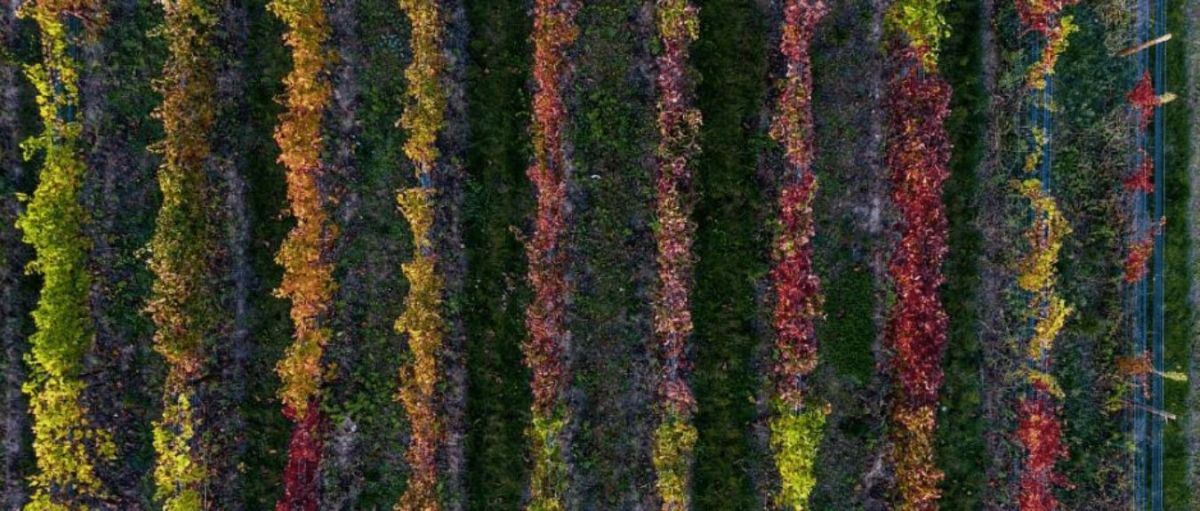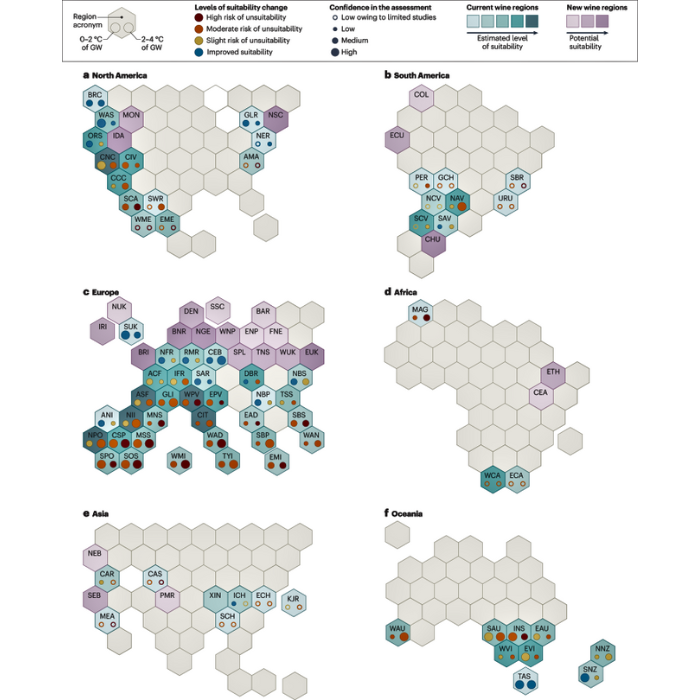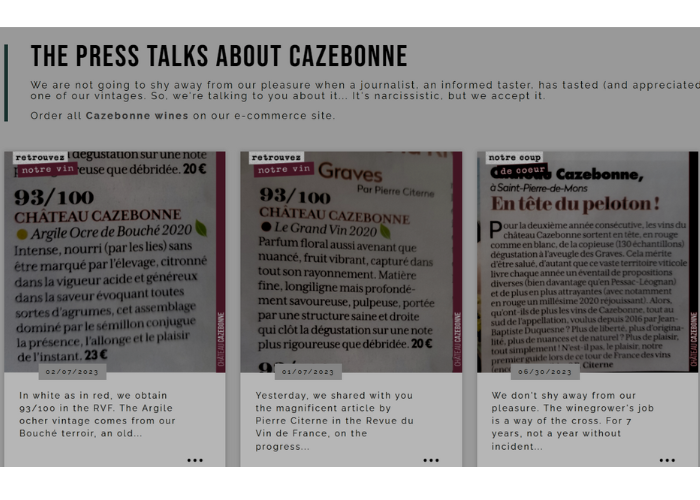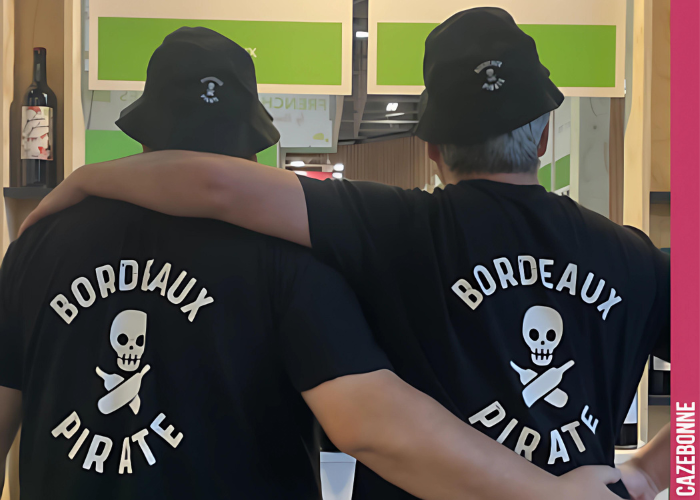Warehouse
Deadline
July 10, 2026
Judging
Date
July 27, 2026
Winners
Announced
August 12, 2026

A recent report finds that if global warming exceeds 2°C, up to 90% of coastal and low-altitude regions in southern Europe and California may no longer be able to produce wine sustainably. Innovation, including openness to new wine grape varieties combined with strong marketing efforts, maybe the key to Bordeaux’s future.
For any wine specialist, the concept of terroir—how a wine expresses the unique characteristics of its origin, including its typical grape varieties—is paramount. Yet, as climate change accelerates and new diseases emerge, the very essence of terroir may fall under threat. Vineyards worldwide are facing unprecedented challenges, forcing winemakers to adapt or risk losing their wines’ essence. This situation has resulted in innovation in places like Bordeaux, including the use of new hybrid grape varieties and historic Vitis vinifera varieties. Such change also calls for innovative marketing, entering wine competitions and winning awards, using social media, which in turn enhances public acceptance of these new wines.
Climate change is disrupting traditional grape-growing regions, challenging winemakers to rethink their business plans. Rising temperatures, altered rainfall patterns, and increased frequency of extreme weather events are reshaping the wine map. A recent study published in Nature Reviews Earth and Environment warned that if global warming exceeds 2°C, up to 90% of coastal and low-altitude regions in southern Europe and California may no longer be able to produce economically sustainable wine by the end of the century. France’s INRAE notes: “Harvesting in most vineyards now begins two to three weeks earlier than it did 40 years ago, with effects on grapes and the resulting styles of wines. Temperature increases, for example, can change how a wine tastes if grapes lose acidity, increase wine alcohol, and modify aromatic signatures.”

Source: INRAE
In Bordeaux, a region renowned for its red wines, the changing climate is a cause for concern. Warmer temperatures are accelerating vine development, leading to earlier harvests and altering the composition of grapes. INRAE writes: “Adaptation strategies also depend heavily on local conditions and are only worthwhile if they can ensure the economic viability of production.”
Bordeaux is responding by approving new grape varieties to mitigate climate change impacts while maintaining the region's identity. Varieties like Touriga Nacional, Marselan, Castets, and Arinarnoa offer resistance to vine diseases and produce wines with rich flavors, ensuring Bordeaux remains at the forefront of winemaking.
As traditional grape varieties face challenges, winemakers are turning to unusual and hybrid grapes to ensure the continuity of their craft. Wine Searcher reported that hybrid vines plantings in France had jumped by 46.7 percent or 552 ha to 1732 ha, between August 2021 and August 2022. During that time plantings of Floréal, one of the new French hybrids, almost doubled from 250 ha to 452 ha. Souvignier Gris remained the most planted hybrid grape at 495ha). Vinifera grapes, too, like Alvarinho and Liliorila, approved for use in Bordeaux, offer resilience to changing climates and produce wines with distinct aromas and flavors. These varieties, once forgotten, are now revitalizing the wine world, bringing new dimensions to familiar styles.
Alongside climate change, vineyards are grappling with the spread of diseases. Grapevine trunk diseases, such as Esca and Eutypa dieback, are becoming more prevalent, threatening vine health and longevity. These diseases can significantly reduce yields and alter wine styles, posing a significant challenge to winemakers worldwide. This simply further complicates the picture created by climate change, and the two issues are related.
In traditional and seemingly stodgy Bordeaux, innovation has actually long been the key to survival. Winemakers like Jean-Baptiste Duquesne of Château de Cazebonne are leading the charge. Duquesne, known for his organic and biodynamic methods, is also championing the preservation of Bordeaux's forgotten grape varieties. By replanting grapes like Bequignol and Petit Péjac, Duquesne is not only conserving heritage but also creating wines that defy expectations, offering a glimpse into Bordeaux's future. Its Cépages d'Antan line forcefully promotes wines made from historic varieties.
Cazebonne’s website is replete with current news about critic's scores, reviews, and the results of wine competitions. Direct-to-consumer sales and plenty of information dissemination form cornerstones of the marketing plan.

Cazebonne depends heavily on wine competition awards and critics’ scores to spread its message. Source: Cazebonne
Ducourt, a prominent Bordeaux wine producer, is making waves in the industry with its innovative approach to winemaking. In addition to their traditional offerings, Ducourt is exploring the use of grey grape varieties, including one hybrid, which have white flesh but pink-colored skins. This unique characteristic results in a pale salmon-hued juice with silver-toned hints, setting these wines apart in terms of both appearance and flavor.
The history of gray grape varieties is rich, with records of "sauvignon gris" dating back to the 17th century. Despite their rarity, Ducourt has selected the hybrid "souvignier gris" and "sauvignon gris" for their unique qualities and potential to create exceptional wines.
The gray wines, known as vins gris, offer a unique type of rosé characterized by their very pale color and beautiful aromatic finesse. These wines provide a refreshing alternative to traditional rosés, with a delicate flavor profile that is sure to please even the most discerning palates.
Ducourt's approach to planting these varieties is innovative yet rooted in tradition. They are focusing on resistant varietals, achieved through cross-breeding traditional varieties with more robust ones. This method, while not revolutionary, aims to address challenges such as global warming and the use of chemical products in vineyards, ensuring a sustainable future for winemaking.
Since 2014, Ducourt has planted 14.7 hectares of hybrids in several Bordeaux appellations and is ramping up production to produce 100,000 bottles each year. The wines have been classified as Vin de France, as they are not yet permitted in Bordeaux AOC appellations. This is its “Mestissage” line. This experiment has two main objectives: to reduce the amount of phytosanitary treatment by 50% or more for a growing cycle and to produce quality wines that can be distributed and sold in the long term. With a planting density of 4,500 vines per hectare and a soil type of loamy clay, Ducourt's experimental wines represent a commitment to sustainability and innovation in winemaking.

Source: Cazebonne
Finally, the Union des Vignerons Bordeaux Pirate, a collective of alternative Bordeaux winemakers, was officially launched on September 15, 2022. It began as a Facebook group in 2019 by Jean-Baptiste Duquesne of Château Cazebonne, aiming to showcase innovative approaches in Bordeaux winemaking. The group now has over 3,000 members, with 10 official members including Duquesne, Laurent Cassy of Château Chillac, and Fabien Lapeyre of Château La Peyre. Their goal is to provide a platform for unconventional Bordeaux producers to communicate with professionals and the public. Marketing through social media is key. Membership requires an annual fee and having at least one wine labeled as 'pirate' by a jury of experts. The collective emphasizes personal identity and innovation, welcoming any new approach to winemaking, with a focus on organic production.
In conclusion, the challenges posed by climate change and disease are reshaping the landscape of vineyards and wine styles worldwide. In response, the wine industry is embracing innovation, from the adoption of new grape varieties to sustainable farming practices. Bordeaux, with its rich winemaking tradition, is at the forefront of these changes, exemplified by producers like Jean-Baptiste Duquesne of Château de Cazebonne and Ducourt, who are leading the way in preserving heritage while embracing the future.
[[relatedPurchasesItems-55]]
Furthermore, marketing innovation, entering wine competitions and winning awards play a crucial role in ensuring the continued sustainable operations of wineries. By showcasing their innovative approaches and unique wines, producers can not only attract new consumers but also build a strong reputation in the industry. This, in turn, helps to secure their place in the market and ensures the longevity of their operations in the face of evolving challenges.
As the wine industry continues to evolve, it is clear that adaptation and innovation will be key to navigating the changing landscape. By embracing change and continuing to push boundaries, wineries can not only survive but thrive in a rapidly changing world.
Header Image Source: INRAE
Grow your wines in the off-premise channels of the USA. The Early Bird submission deadline is February 20, 2026, and the domestic submission deadline is June 30, 2026. Here is how to enter.